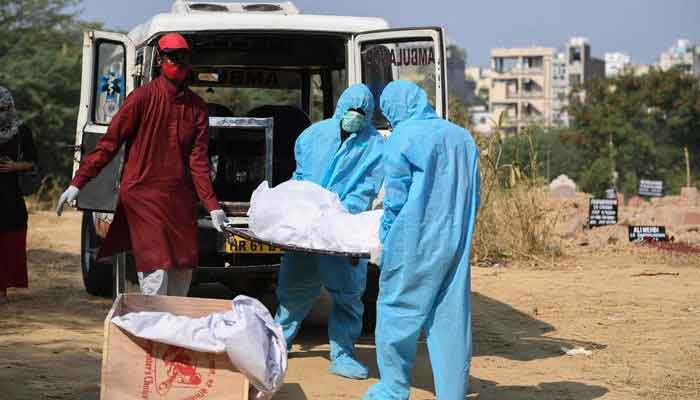Political rivalry can hamper Pakistan's fight against COVID-19: report
December 05, 2020

ISLAMABAD: The ongoing political rivalry in Pakistan between the government and the Opposition parties may hamper the country’s fight against the second wave of the coronavirus, according to a monthly COVID-19 response report.
It has been prepared by the Trust for Democratic Education and Accountability-Free and Fair Election Network (TDEA-FAFEN) for the first time. The report is based on data collected through stakeholders’ surveys and direct observation of enumerators deployed in 20 project districts.
The report says stakeholders need to handle the second wave carefully.
It is expected that Pakistan will face serious health-governance challenges at both policy and implementation levels. If these challenges are not addressed, it might jeopardise and reverse the gains made in the first phase of the fight against the pandemic.
Read more: Another deadly day in Pakistan as COVID-19 claims 75 lives
Increased politicization and lack of adherence to the standard operating procedures are the two major new challenges which were not prominently witnessed during the first wave of the virus, the report said. Apart from this, the usual challenge of limited resources remained relevant.
How has the response been so far?
According to the key findings of the report, coordination mechanisms made to manage the response during the outbreak earlier this year, largely remained intact in 14 of the 16 observed districts with key stakeholders, including healthcare staff, elected leaders and civil society organisations, represented on coordination platforms.
The research respondents’ opinion about the effectiveness of coordination mechanisms in 16 districts reflected a variance, with a majority of 78% rating it between average to highly effective.
Most districts said they developed and implemented safety SOPs in consultation with key stakeholders, like schools and business and traders’ associations.
The stakeholders and TDEA-FAFEN’s enumerators, however, noted implementation and enforcement of SOPs to be an area of serious concern.
Read more: Former accountability judge Arshad Malik passes away due to coronavirus
Government officials in these districts claimed sufficient stock of personal protective equipment. But most representatives of doctors’ and paramedics’ associations only partially endorsed the statement.
Health facilities in the districts overall remained a significant concern as the testing, quarantine/isolation capacity and other provisions, such as ventilators are feared to fall short if the rate of infections is not slowed down or checked.
The numbers and skillset of healthcare providers is another problem.
Doctors in the majority of the districts (11 of 16) and paramedic representatives in a third of the districts (5 of 14 districts) agreed their colleagues were not adequately trained to deal with COVID-19.
Political and policy dynamics, too, are becoming increasingly critical. During October, legislative oversight remained marginal, while the politicisation of the virus response gathered momentum in the wake of the opposition’s ongoing agitation against the government.
‘Political war may play negative role’
The report noted that the recent political war between the government and opposition is likely to play a negative role in the country’s war against COVID-19.
Pakistan witnessed a rise in political temperatures after the Pakistan Democratic Movement launched its anti-government campaign.
Read more: PDM not permitted to hold Dec 13 rally due to rising COVID-19 cases: Deputy Commissioner Lahore
In the first wave, the government had the support of the opposition. But since the pandemic has now become politicised, it may mean lack of trust in the government and its policies to flatten the curve, the report said.
Urgent and focused response required
In October, there has been an increase in the number of new confirmed cases from 313,431 to 333,970 and 324 deaths (rising from 6,499 to 6,823 dead).
Limited infrastructural capacity at the district level, need for capacity-building of first-line responders as well as stakeholders like members of the civil society organisations and journalists and a rampant increase in infections are all critical factors which indicate the government’s response must be urgent and focused.











